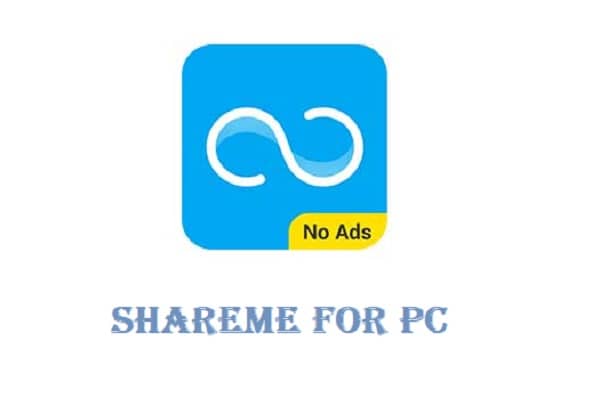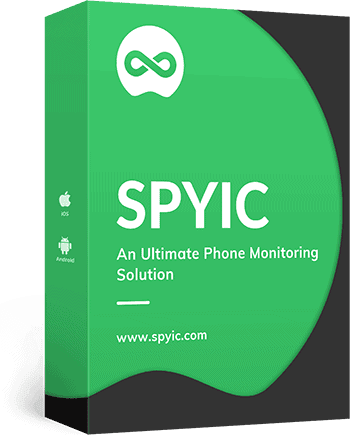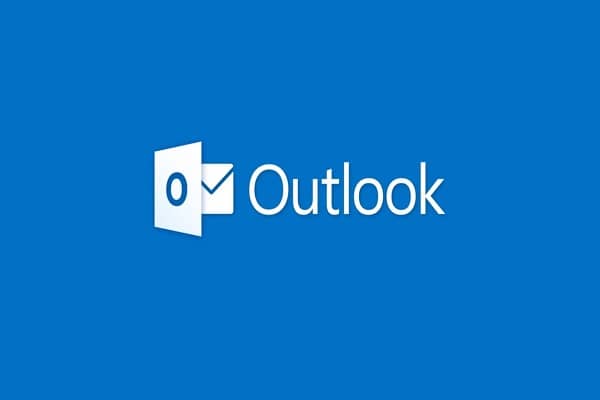Software development services, solutions, and applications have had a major impact on the healthcare industry. Powerful technological advancements have revolutionized hospital management, medical operations, and the patient care cycle. These solutions help healthcare professionals accommodate complex clinical demands, improve care coordination, and streamline population wellness management. Ultimately, advanced software products reduce healthcare costs and maximize operational efficiency. They can even help teams with developing new drugs, medications, and treatment methods. As a software engineer yourself, you should understand how transformative bespoke applications have altered the medical field. This way, you can successfully build software applications for this critical, highly-regulated, and future-proofed industry. To get started now, read on to learn about the impact of software development on the healthcare industry.
Contents
Advanced-Data Security
Innovations from custom software development empower advanced data security throughout the healthcare and medical sector. In the healthcare industry, information security and privacy is absolutely essential. Every day, hospitals and medical businesses generate high volumes of confidential, sensitive, and HIPAA-compliant data. Fortunately, there are a wide range of security measures to use during development. With heightened data security protocols, healthcare firms can protect valuable patient data, defend against hackers, and meet compliance requirements. Most importantly, they can comply with stringent Health Insurance Portability and Accountability Act (HIPAA) requirements. These require medical companies to take additional measures for protecting identifiable patient data from breach, fraud or theft. Ultimately, data security keeps internal software, hardware, security processes, and success secure. Certainly, healthcare businesses are investing in custom software for advanced data security functionality.
Powerful Containerization Technologies
In addition, powerful software containerization technologies have revolutionized healthcare, hospital, and medical operations. Containers help healthcare software developers support resource efficiency, high scalability, and storage security. Plus, containers are easily portable – giving applications the ability to run on any environment or underlying operating system (OS). Healthcare dev teams across the globe are adopting different platforms, tools, and resources for containerization. Many programmers use JFrog Docker hub for built-in security features like local image vulnerability scans and multi-factor authentication (MFA). With this functionality, niche medical programmers can access a large library of Docker certified, verified publisher images. This way, they can assure operational consistency, infrastructure optimization, and fine-grained access resilience. Surely, consider how software containers have changed the healthcare industry.
Development Of Custom Telemedicine Platforms
Telemedicine platforms are likely the most in-demand product across the healthcare software development field. Ever since the pandemic, more healthcare businesses are switching to telemedicine for comfort, convenience, and speedier care. Plus, these software platforms support infectious disease control, simplified chronic condition management,and better medical assessments. Healthcare developers are tasked with building secure, HIPAA-compliant platforms where virtual medical consultations, appointments, check-ups, and therapies can occur. These platforms must support patient registration, appointment management, and ePrescription writing. Plus, they must offer a secure meeting room for text, audio, and video communications. This is crucial to ensure a hassle-free, convenient, and smooth treatment experience. A telemedicine app also needs to include a secure payment gateway, where clients can pay for medical services received. Indeed, the development of telemedicine software platforms have revolutionized the healthcare field.
Virtual And Augmented Reality (VR/AR) Integrations
Virtual and augmented reality integrations have also had a serious impact on the global healthcare industry. VR and AR are now widely integrated in the top healthcare software programs, platforms, and applications. These technologies simplify medical diagnosis and treatment. Plus, they allow medical students to work in artificial treatment environments. Here, they can perform simulated surgeries, pain management treatments, and rehabilitation programs. In recent years, the international healthcare VR market was valued at over $325 Million. Its presence and popularity are expected to grow even more in upcoming years. After all, these solutions reduce healthcare workers risk, provide hands-on practice, and help patients manage stress. With so many notable applications, these solutions have been applied to numerous medical fields – including mental health, dentistry, pain management, and psychological therapy. Absolutely, VR/AR software integrations have certainly impacted the healthcare field.
Actionable Data Analytics
Software applications also provide healthcare companies, workers, and managers with actionable data analytics. In fact, many hospitals have even integrated healthcare-specific, high-performance analytics software. These products can monitor for increases or decreases in staff levels, patients, or visitors. Companies also use these solutions to track emergency room (ER) turnover and average patient stay. Or, gain analytics into incoming calls or inquiries. Then, they can categorize this data based on volume, average time, and geographic location. With this functionality, IT teams can automate hospital administrative and treatment processes. Plus, they can effectively distribute patient data and minimize missed appointments. When organized properly, these insights can even lower costs, investigate specific patient cohorts, and predict patient risks. Definitely, many healthcare businesses adopt software development products for advanced data analytics.
Documentation Of All Daily Processes
Software development products give healthcare teams an easy, convenient way to document all daily processes. Hospitals operate on a 24/7 basis. To stay organized, the work of surgeons, doctors, nurses, and administrative teams must be thoroughly documented. This way, it can be carefully vetted and monitored for irregularities. Of course, strong documentation can promote quality of care, support patient safety. Due to its critical importance, many hospitals implement software products solely for medical recordkeeping. These give workers a method to clearly, consistently, reliably, precisely, and legibly upload their daily documentation. Then, it can be immediately viewed by doctors, clinical management teams, or incoming shift leads. Naturally, this helps increase the level, quality, speed, and efficiency of medical services. Notably, software development products give healthcare teams an easy way to document all day-to-day processes.
Better Patient Experiences
Ultimately, custom software development technologies greatly improve patient experiences. Medical teams should always be looking to make patients happier, more comfortable, and satisfied. Software gives teams all the tools, functionality, and resources need to deliver a superior patient experience. These software can help optimize processes from the moment patients walk in, until they check-out of the facility. The best healthcare software can notify patients of upcoming appointments, allow early check-ins, and give them information on what to expect. Advanced applications even distribute post-treatment surveys and questionnaires. This way, companies will best understand how to improve the client experience even more. Software products can additionally ease the work of front desks, receptions, and other administrative staff – improving their internal work experience as well. Clearly, software development applications and solutions are delivering better patient experiences for healthcare industry professionals.
Reduced Paperwork
With digital technologies, healthcare companies, doctors offices, and hospitals can replace paper processes. Physical paperwork can be incredibly time-consuming, tedious, and frustrating for medical practitioners. Ultimately, it prevents them from treating patients and saving lives. Healthcare software digitalizes processes and eliminates excessive paperwork. It significantly lowers the paperwork demands and pressures for doctors – so they can focus on improving patient experiences. With these tools, they’ll have an online, partially-automatic method to compile registration documents, fill out forms, and record maintenance. Additionally, these tools remove paperwork associated with file management and patient data storage. With less paperwork, healthcare facilities can be more efficient, productive, and eco-friendly. Plus, they can save money and physical storage space. Automating paperwork processes with software can even assure compliance regulation, simplify information distribution, and boost data security. Assuredly, healthcare software development solutions are greatly changing paperwork demands for medical businesses.
Superior Hospital Equipment Management
Moreover, hospital software applications can optimize equipment management processes and protocols. Equipment purchasing, maintenance, and management operations at major hospital conglomerates are incredibly complex. This is especially true when dealing with expensive, essential, and life-saving forms of machinery. By 2023, the global medical equipment market is expected to surpass $600 Billion. Software technologies give teams a way to closely monitor healthcare machinery, technology, and equipment components. These products organize operational expenses, automate inventory control, and ensure that vital machinery is operating properly. Certainly, these help optimize, streamline, and simplify the hospital equipment management lifecycle. Plus, they make it easier to coordinate with maintenance providers whenever support is needed. Indubitably, companies are utilizing hospital management software to streamline equipment management processes.
Custom software development has had a major impact on the healthcare and medical industry. For a start, these technologies empower higher standards of data security and privacy. Of course, this is critical to alleviate dirty data cybersecurity concerns in hospitals, doctors offices, or emergency rooms. In addition, software containerization functionality has helps keep the medical sector secure, portable, and immutable. VR/AR integrations have become extremely popular throughout the healthcare field. Software products additionally provide healthcare firms with actionable, big data analytics. These digital products additionally give teams a way to document all daily work and day-to-day processes. Plus, they enable healthcare companies to supercharge patient experiences. More, software products replace and automate paper processes for growing healthcare firms. Further, investing in advanced software applications can promote superior hospital operations, personnel, and machinery management. These tools help organize, optimize, and track the equipment management lifecycle. Follow the points highlighted above to learn about the impact of custom software development on the healthcare industry.




